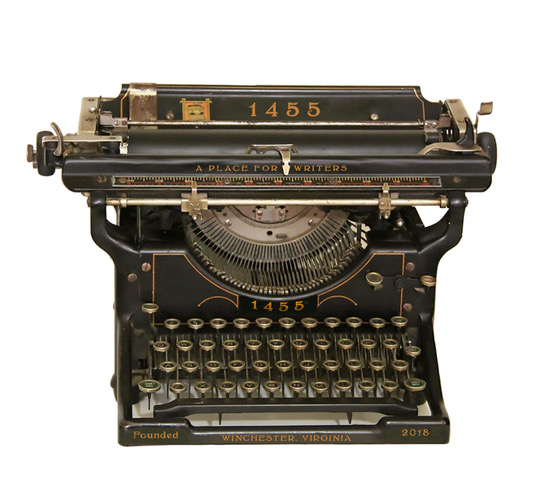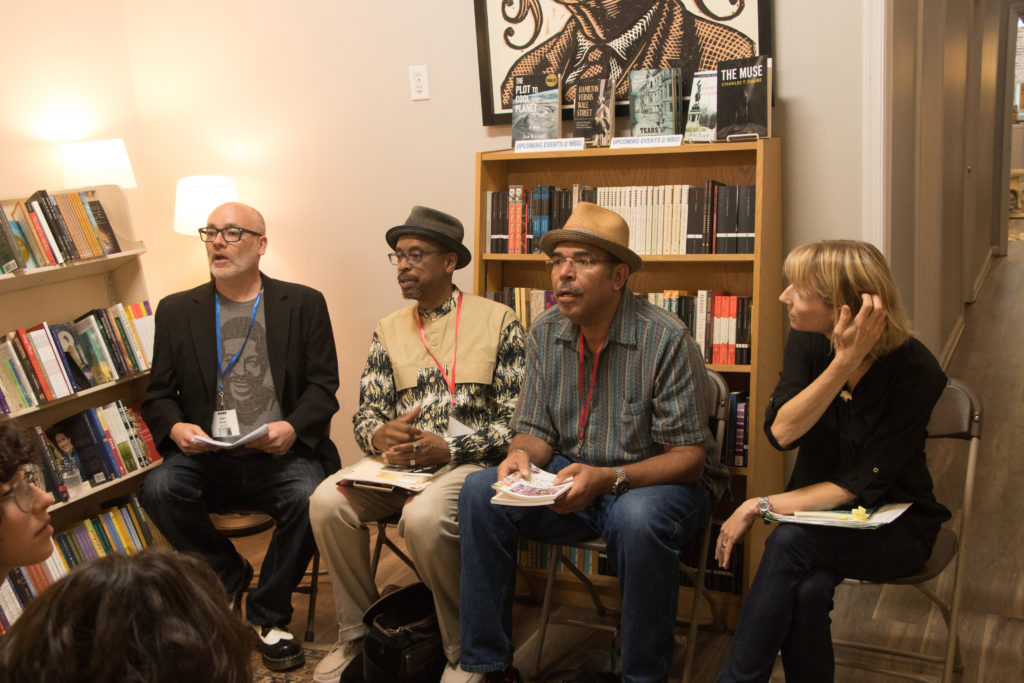
Let me tell you a story.
The discovery of the first cave drawings offers conclusive evidence of at least one thing: the power of narrative has been with us as long as we’ve been able to communicate. One might suggest these crude but sometimes beautiful images were the first example of what Whitman lovingly christened a barbaric yawp: individuals using whatever means were at their disposal to create, express, warn, celebrate, instruct, or impress.
Mostly impress. And thus, writers were invented.
But facetiousness aside, the trajectory we can easily trace from these primordial sketches to social media involves the impetus of narrative. 1455 takes its name in celebration of the year Gutenberg began printing books—arguably the signal sociopolitical advancement of the millennium. Without this miracle, the act of storytelling would remain, at worst, an oral tradition; at best, reserved for an elite class that controls both the creation and dissemination of information. As such, knowledge, literacy, and an appreciation of cultural traditions were advanced, practically overnight.
Stop me if you’ve heard this one before: the Internet was a pretty big paradigm shift as well.
Arguably, it represents the most significant innovation since Gutenberg’s press. With the internet, anyone can be a writer, editor, or content provider in 2020. This is, in almost every way (fake news excluded) a blessing, but for the artistic class it’s a mixed one: in short and sum, it’s never been easier or less expensive to get your story into the world, but there’s never been more competition—more content—in this ever-crowded space.

In my experience as a poet, journalist, novelist, critic, tech analyst, and founder of a non-profit arts organization, I believe 1455’s unique value proposition is harnessing this messy but viable potential, exposing important voices, inspiring awareness via educational, cultural, and social programs and events. Indeed, we’ve begun this work, via our monthly Author Series, monthly Spoken Word events, workshops, and annual Literary Festival.
Until now, discussion of creativity as vocation has resided mostly in English Departments and the occasional, earnest Op-Ed (invariably by an under-published author with neither the strategies nor funds to affect meaningful change). In a workforce where AI and machines are celebrated and feared in equal measure (one’s opinion likely depends on whether it’s one’s job being automated), writing clearly and communicating effectively could preserve your paycheck. It’s no longer atypical to read CEOs and industry big-wigs—traditionally stalwart advocates for STEM programs—lauding not only the merits, but societal value of a Humanities degree.
Our world—on macro and micro levels—is not getting less diverse, either. Showcasing multiple perspectives, including traditionally marginalized voices, is not “merely” an enriching proposition, it’s good business, too. Think tanks, college seminars, boardrooms, reading groups, and writers collectives all advance this work in their way, but too often these are exclusive and siloed environments. 1455 advocates for a physical space equipping writers (and readers) to congregate and create. At the same time, we produce robust, free programming and not least, we utilize available technology to foster a virtual community with no size limit or registration fee. We’re storytellers telling stories and doing everything possible to shine necessary light on the words that might change the world, one narrative at a time.
All of which is to say, the need for personal narrative is as imperative and empowering as ever, and the ability to share these stories has never been more accessible, more possible. At 1455, we provide space for storytellers to connect, sharing resources to assist and inspire writers anywhere, and everywhere. In the process, we’ll establish the Shenandoah Valley and surrounding region as a new epicenter that celebrates creativity and supports communities. We bring together artists, educators, entrepreneurs, and enthusiasts, all with a passion to promote literacy and the literary arts—finding ways to engage in positive dialogue and opportunities to enrich, by all means necessary.
Please visit our EVENTS page to see upcoming programming, including our storytelling series and our second annual Summer Literary Festival.

